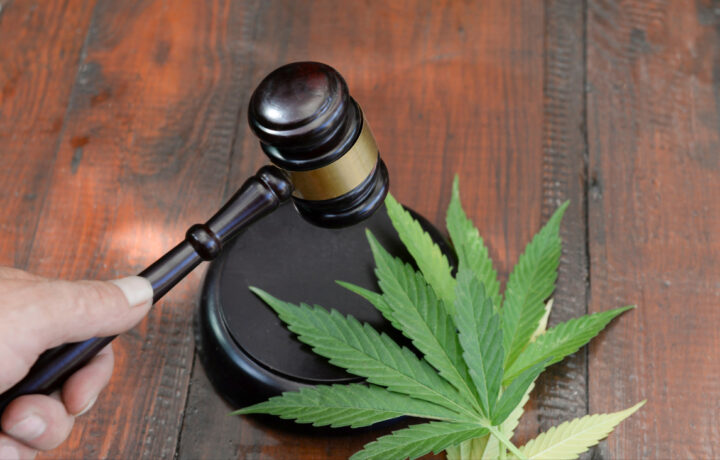So, you’ve been offered a job that requires a U.S. security clearance—but there’s one thing nagging at you: that time you used marijuana. Maybe it was just once in college. Maybe it was more recent. Either way, you’re wondering: Do I have to say something? Will it kill my chances?
Here’s the straight talk you need—because when it comes to the SF-86 and prior drug use, the biggest mistake applicants make is either guessing or avoiding the truth.
The SF-86 Asks. You Answer.
The SF-86 (Standard Form 86) is the detailed questionnaire you fill out when applying for a security clearance. It asks about your entire background—residences, employment, foreign travel, finances, and yes, drug use.
Question 23 of the SF-86 gets specific: it asks whether you’ve illegally used any drugs or controlled substances in the last seven years. That includes marijuana—even if it was legal under your state law.
Let’s repeat that, because it trips people up: even if marijuana was legal in your state, it’s still considered illegal under federal law, and the federal government oversees security clearances.
So yes, if you used marijuana within the last seven years, you’re expected to report it.
What About CBD or Medical Marijuana?
This is where things get more nuanced. Even CBD products can be risky—many aren’t regulated and could contain THC, which might show up in a drug test. And while medical marijuana may be prescribed under state law, it’s still not legal under federal law. So if you’ve used it, it should still be disclosed.
The “Whole Person” Concept: Why Disclosure Matters
You might worry that reporting marijuana use will automatically disqualify you. But here’s the good news: prior marijuana use alone doesn’t mean you’ll be denied a clearance.
Adjudicators use what’s called the “whole person concept”—meaning they evaluate your conduct in context. Occasional marijuana use during college? Probably not a big deal. Regular use in the past year while applying for a Top Secret clearance? That might raise some flags.
Some of the things they’ll consider:
- How frequently did you use?
- How recently did you stop?
- Have you acknowledged the illegality of it under federal law?
- Do you intend to use again in the future?
Bottom line: honesty shows integrity. And integrity is one of the top traits clearance holders are evaluated on.
Timing Your Disclosure: When and How
You disclose your marijuana use directly on the SF-86, in the section about drug use within the last seven years. You’ll list the type of drug (marijuana), the timeframe, and how often you used it. There’s space to explain context, which can be helpful—especially if the use was limited or distant in the past.
Don’t try to play it safe by leaving things out. That’s what trips up applicants the most. Failing to disclose is a bigger issue than the marijuana itself.
You may also be asked about your drug use during the security interview portion of the process. Again, being forthright and consistent is key. Investigators are trained to spot discrepancies, and your credibility matters just as much as your actual behavior.
What If You’re Still Using?
That’s where it gets harder. If you’re currently using marijuana—or have within the past 6–12 months—it’s likely to delay or derail your clearance. The adjudicative guidelines for clearance eligibility emphasize willingness to comply with the law, and using a Schedule I drug like marijuana under federal law isn’t seen as compatible with that.
But if you’ve stopped, acknowledged the issue, and shown that you don’t intend to use again, many applicants have successfully moved forward. Some agencies may want to see a longer period of abstinence—especially for higher-level clearances.
Tips for Applicants
1. Be honest. Lying or omitting information is far riskier than just telling the truth.
2. Don’t panic. Prior marijuana use is incredibly common. Investigators know this, and it’s not a deal-breaker if handled appropriately.
3. Explain clearly. Use the remarks section to briefly explain the circumstances and show awareness of federal law.
4. Don’t use again. If you want to keep your clearance—or ever hope to get one—abstaining from future use is critical.
5. Know your agency. Some agencies are more conservative than others. Intelligence and law enforcement agencies typically have stricter views than, say, DoD contractors.
What If You Didn’t Disclose It?
If you’ve already submitted your SF-86 and realized you left out prior marijuana use—whether out of fear, uncertainty, or misunderstanding—don’t just hope it gets overlooked. It’s far better to come forward and clarify the omission before it’s discovered during your background investigation. You can bring it up voluntarily during your security interview or submit a written addendum to your form. The key is to take ownership early. Investigators are often more concerned with concealment than the conduct itself—coming clean can actually work in your favor by demonstrating integrity and accountability.
Final Thought: You’re Not Alone
Thousands of applicants have had to check “yes” to prior marijuana use—and many of them still go on to receive a clearance. What separates successful applicants from denied ones often comes down to honesty, self-awareness, and good judgment.
The path to a clearance isn’t about being perfect—it’s about being trustworthy.




